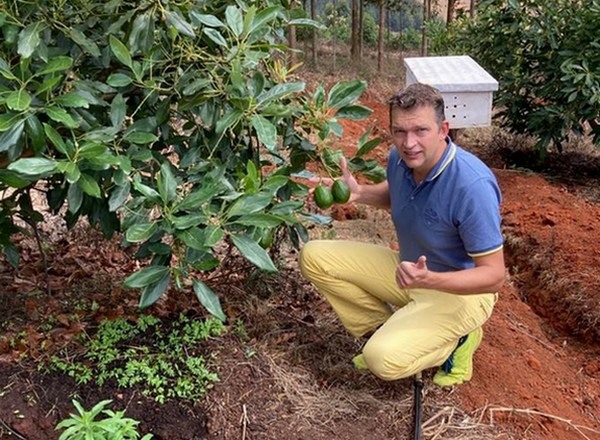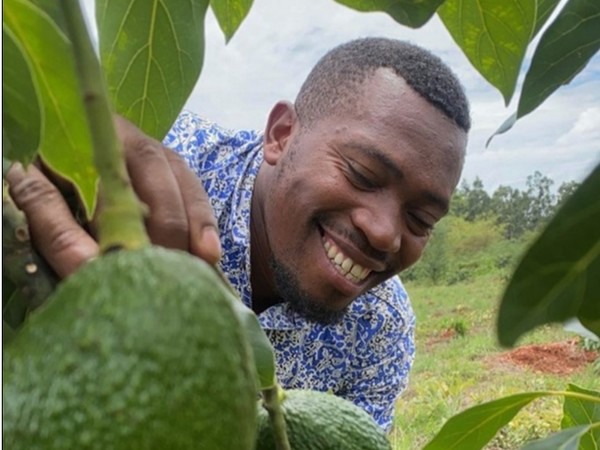When, in 2014, Proganic began cultivating organic avocados in Tanzania, the Dutch company committed to a long-term relationship. That is now bearing fruit. Since then, not only sales but production and acreage, too, has grown.
They cultivate those avocados in different areas in Tanzania. Since last year, Proganic can thus import almost year-round from that country, which has proven to be highly suited to organic avocado farming. There is plenty of available land, and the disease pressure is quite low. Proganic has its own growers and packing plant there. "We do so because we want to guarantee quality and, thus, be a reliable player. Although we import and export, we're primarily producers. We don't deliver directly to end customers. Our avocados go to packers and from there on to retail," begins co-founder Renzo Veenstra.

Cultivation advice
To meet year-round demand, Proganic cultivates organic avocados in Mexico and the company is establishing farms in Lebanon and Spain too. Still, Tanzania, where it all began, remains the base. "There were good opportunities for organic cultivation in Tanzania. Those growers were actually already farming organically but weren't getting premium prices for their product - the local market doesn't differentiate between conventional and organic. We helped them get certified organic and thus create an outlet in Europe, where they could get premium prices."
Each country where Proganic works has a quality team and one that provides cultivation advice. They visit, guide, and support the growers.
"We’ve improved the crop in several ways. Sometimes small things, like using bees, add long-term value. Initially, we had to gain people's confidence. We had to make it clear that we work with client programs and had to, for instance, adjust the timing of harvesting to that. We now have year-round buyers, which gives our growers job security and future prospects," says Renzo, explaining that Proganic invests a lot in the growers.
Besides paying for organic certification, the company pays a higher price for the fruit, giving the growers more income. "Growers that have been there since day one are expanding in both production and acreage. They're replanting and growing. Ultimately, we want a large-enough group of growers to have enough product available."

New markets
Two or three containers of organic avocados arrive every week in the Netherlands. A few go outside Europe; most stay within its borders. Germany and Austria are established organic markets and there are new opportunities in Eastern Europe. "Avocado is an emerging product in countries like Poland, Croatia, the Czech Republic, and Hungary. Though the ratio is still small, there'll be organic markets eventually, too. A customer from one of those countries buying ten pallets will have only a few boxes of organic among them. But if that market starts growing, organic avocado demand will grow with it," Renzo continues.
There are fewer organic avocados than conventional ones. Unlike the conventional market, organic players want more specific sizes, in Renzo's experience. "Organic players like the medium sizes, while conventional buyers prefer the larger or small ones. Also, conventional avocados are often ripened while organic avocados are triggered, which means they last longer."
Consumption will rise
Recently, there have been random whispers that the organic market is declining due in part to the high inflation. Proganic's demand is, however, not decreasing. "There was a drought in Spain last summer, so there was less supply of organic and conventional avocados. Organic avocado demand continues, though. That also has to do with brand awareness. When the economy is doing well, organic does better. But there's always a group that keeps buying organic," says Veenstra. He is, therefore, confident about the future. "Avocados remain a popular product and are becoming more common.”
“Per capita consumption will increase, also in the Netherlands. There are undoubtedly opportunities arising for organic avocados in emerging countries. I think the younger generation buying per recipe and often buying avocado also plays a role. It's a very healthy, highly nutritional product. We want to become Europe's organic avocado supplier. The challenge here is to supply a good-quality, competitively-priced, year-round product. People will pay for organic avocados, but they must be good and tasty. That's why we'll keep investing in our growers, so we can continue growing together," Renzo concludes.
For more information:
Renzo Veenstra
Proganic
sales@proganic.nl
www.proganic.nl

